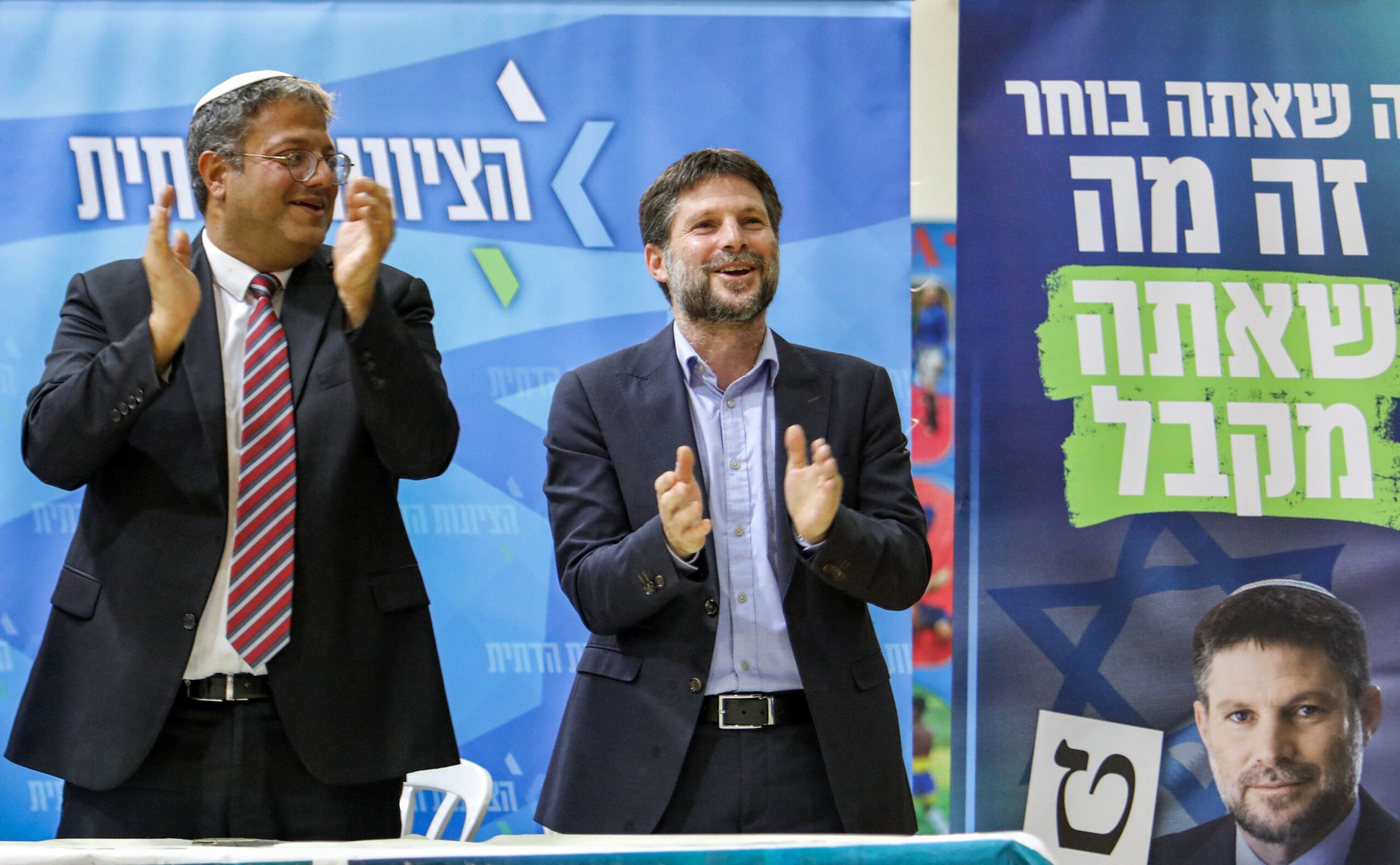Most of the time, as the senior rabbi of Temple Beth-El in San Antonio, Rabbi Mara Nathan’s focus is on Jewish families. But this week, she’s finding herself thinking about Christian ones, too.
That’s because Texas is poised to adopt a public school curriculum that refers to Jesus as “the Messiah,” asks kindergartners to study the Sermon on the Mount and presents the Crusades in a positive light.
The curriculum, Nathan said, “gives Christian children the sense that their family’s religion is the only true religion, which is not appropriate for public school education, at the very least.”
Nathan is among the many Texans raising concerns about the proposed reading curriculum as it nears final approval. Earlier this week, the Texas State Board of Education narrowly voted to proceed with the curriculum, called Bluebonnet Learning. A final vote is set for Friday.
The critics, who include Jewish parents and organizations as well as interfaith and education advocacy groups, say Bluebonnet — which will be optional but which schools would be paid to adopt — inappropriately centers on Christian theology and ideas. They have been lobbying for revisions since it was first proposed in May, offering detailed feedback.
“The first round of the curriculum that we saw honestly had a lot of offensive content in it, and was proselytizing, and did not represent Jewish people well,” said Lisa Epstein, the director of San Antonio’s Jewish Community Relations Council.
Now those critics say most of their specific suggestions have been accepted but they remain concerned.
“Looking at the revision, we still feel that the curriculum is not balanced and it introduces a lot of Christian concepts at a very young age, like resurrection and the blood of Christ and the Messiah, when kids are just really too young to understand and they don’t really have a grasp yet completely of their own religion,” she added. Epstein, who testified at a hearing on the proposal in Austin on Monday, has a child in high school and two others who graduated from Texas public schools.
The Texas vote comes as advocates of inserting Christianity into public education are ascendant across the country. Political conservatives are in power at the national level and the Supreme Court’s conservative supermajority has demonstrated openness to blurring church-state separation.
President-elect Donald Trump has signaled support for numerous initiatives to reintroduce Christian doctrine into public schools, from supporting school prayer to endorsing legislation that would require public school classrooms to display the Ten Commandments. (One such measure in Louisiana was recently blocked by a federal judge.)
In Texas, Bluebonnet’s advocates say the curriculum would elevate students’ learning while also exposing them to essential elements of cultural literacy. They note that the curriculum includes references to a wide range of cultures, including ancient religions, and that the religious references make up only a small fraction of the material.
“They’ll elevate the quality of education being offered to all Texas students by giving them a well-rounded understanding of important texts and their impact on the world,” Megan Benton, a strategic policy associate at Texas Values, which says its mission is “to stand for biblical, Judeo-Christian values,” said during the hearing on Monday, Education Week reported. Texas Values called criticism of the proposed curriculum an “attack on the Bible.”
The Texas Education Authority solicited the proposed curriculum, which would join a menu of approved options, as part of a pandemic-era effort that waived some transparency laws, meaning that its authors are not fully known. But The 74, an education news organization, reported this week that a publishing company co-founded by former Arkansas Gov. Mike Huckabee contributed content to the curriculum.
Trump tapped Huckabee, a pastor and evangelical favorite, last week to become his ambassador to Israel.
For some in Texas and beyond, Bluebonnet represents a concrete example of how the national climate could ripple out into local changes.
“A lot of things, we think they’re outside of our community, or outside of our scope, like we hear these things, but are they really going to impact us?” said a Jewish assistant principal in the Richardson Independent School District north of Dallas who asked to remain anonymous. “But I think now that it’s becoming a potential reality, a friend was asking me, would Richardson adopt this? Is this something that is really going to happen in our community?”
While the Supreme Court has ruled that public schools can teach about religion, they cannot prioritize one religion over another in that instruction. So Bluebonnet’s inclusion of Christian and Bible stories in lesson plans drew scrutiny from the start — which grew after the Texas Tribune reported that a panel required to vet all curriculum proposals included Christian proponents of incorporating religion in public education.
In September, The Texas Education Authority’s curriculum review board published hundreds of pages of emails from members of the public along with whether the critiques had resulted in changes. Some did, the board noted, but many others were rejected.
A coalition of Jewish groups submitted 37 requested changes to the initial curriculum proposal. Epstein said the San Antonio JCRC had specifically objected to language in some lessons that evoked “antisemitic tropes” and textual inaccuracies in referencing the story of Queen Esther, as well as offensive references to the Crusades and language that explained the birth of Jesus as the messiah.
One passage had invited students to imagine “if you were a Crusader,” Epstein said, referring to the Christian knights of the Middle Ages who sought to conquer the Holy Land, massacred communities of Jews and are venerated by some on the Christian right.
In the case of the Esther lesson, the original curriculum had recreated an aspect of the Purim story in which Haman drew lots to determine when to kill Jews in the Persian Empire — as a way to teach probability. Nathan called that particular lesson “subversively antisemitic.”
“In ancient Persia [drawing lots] was a way of helping someone make a decision, and the game was called Purim,” the initial text read. “Ask students to choose a number from 1 to 6. Roll a die and ask the students to raise their hand if their number was rolled.”
“This is shocking, offensive and just plain wrong,” Sharyn Vane, a Jewish parent of two Texas public school graduates, said at a September hearing, according to the New York Times. “Do we ask elementary students to pretend to be Hitler?” (Historical simulations have widely been rejected by educators for all grades.)
Both of the lessons were revised after feedback from Jewish groups and others, but Epstein and Nathan said the changes were not adequate. A new prompt asks students to describe “the journey of a Crusader” in the third-person, but it still sanitizes the murder of many Jews and Christians during the Christian quest to conquer Jerusalem, Epstein charged.
And while the Purim lots activity was dropped, Epstein noted that a specific lesson plan about Esther — a beloved figure among evangelical Christians — also includes a reference to God, which the Megillah, the Jewish text telling the Purim story, famously does not do. She said that inaccuracy was not addressed in the revisions.
In a statement, San Antonio’s Jewish federation, under which the JCRC operates, also acknowledged the changes that were made after its feedback but expressed concern over what it called “an almost solely Christian-based” perspective with “inaccuracies” and content that is inappropriate for elementary school students.
“We are not against teaching a broad range of religious beliefs to children in an age-appropriate way that clearly distinguishes between ‘beliefs’ and ‘facts,’ and gives appropriate time and respect to acknowledging many different religions,” the federation said. “Public schools should be places where children of all religious backgrounds feel welcomed and accepted.”
The newer version of the curriculum also did not address the federation’s concerns about language referring to Jesus as “the Messiah,” written with a capital “M,” and references to “the Bible,” rather than “the Christian Bible” specifically, as the federation had urged the curriculum’s creators to adopt.
The Austin branch of the Anti-Defamation League, which was also involved in the efforts, also applauded the revisions that had been made thus far but said it still “reject[s] the current version of the proposed curriculum.”
“We agree that students should learn the historical contributions of various religious traditions, but ADL’s analysis of the originally proposed curriculum found that a narrow view of Christianity was overwhelmingly emphasized, there were few mentions of other faiths and the curriculum baselessly credited Christianity with improved societal morality,” the group said in a statement. “Although improvements have been made, the materials still appear to cross the line into teaching religion instead of teaching about religion.”
Criticism to the curriculum goes far beyond the Jewish community. Texas AFT, the state’s outpost of the American Federation of Teachers, a leading teachers’ union, also opposes the proposal. “Texas AFT believes that not only do these materials violate the separation of church and state and the academic freedom of our classroom, but also the sanctity of the teaching profession,” the union said in a statement.
Some Republicans on the Texas Board of Education expressed reservations about the curriculum’s quality and age-appropriateness, separate from its religious content.
And nonpartisan and interfaith groups like Texas Impact and Texas Freedom Network have also been involved in efforts to oppose the curriculum, as has the Baptist Joint Committee for Religious Liberty. Epstein said a Sikh parent also testified at one of the hearings, asking for her faith’s traditions to be incorporated into lesson plans to provide more religious perspectives.
Nathan said that when she testified against the proposal at a September hearing, her allies were diverse.
“Some of the people who were against it were not Jewish, and just were [against] the way that the curriculum was being put together pedagogically,” she said. “But there were both Jewish and non-Jewish people there, and also some Christian folks who were there who were opposed to such an overtly Christian curriculum.”
Marian Neleson, who has a 14-year-old daughter and a 12-year-old son in the Frisco Independent School District, said it has never been easy to be a Jewish family in her area.
“There’s always concerns as a parent when there’s just a handful of other Jewish children in a majority Christian school,” said Neleson, who is active in her local interfaith alliance. “From how the school celebrates, how they do their calendars. Do they remember that there is a Jewish holiday, and then they schedule major school functions on High Holy Days?”
Now, she’s worried that her own district could face pressure to adopt the new curriculum, if it is approved.
“These kind of curriculums are promoting one interpretation, one religion’s view, and I feel like that’s not very respectful of people who come from different backgrounds and different faiths and different religions,” Neleson said. She added, “I do think that the Frisco school district particularly does try to be inclusive and try to recognize the diversity of the community, but I know that there’s always pressure from groups who are trying to promote one agenda in the schools.”
The Richardson assistant principal said she saw in the financial incentive to adopt the curriculum — districts that do so will get up to $60 per student — an inappropriate assertion of support by the state. Many Texas districts are cash-strapped after legislators declined to substantially increase school funding last year.
“There is such a push in education for high-quality instructional materials,” said the assistant principal, who has three elementary school-aged children. “They’re pushing this so hard, and even potentially putting up funding for it if you adopt it, but it’s not a truly high-quality curriculum.”
In a Facebook post after Tuesday’s preliminary vote, Vane encouraged parents to reach out to members of the state’s education board to urge them to oppose the curriculum. “It’s not over yet,” she wrote.
Nathan said she’s not sure how much opponents of the curriculum can do if it’s approved, but she stressed the importance of local advocacy — especially since the curriculum is not required.
“I think reaching out to your local school board and communicating with local teachers in your community is going to be key,” she said. “If this occurs, what do I need to do in my local school district to make sure that there’s programming that balances the perspective?”
But she signaled that the intensity of the proposed curriculum would undercut any counter-programming by representatives of other faiths.
“It’s not presented as, ‘Here’s what Christians believe,’” Nathan said about Bluebonnet. “It’s presented as, ‘Here is the truth.’ There’s a difference.”
Support the Jewish Telegraphic Agency

Help ensure Jewish news remains accessible to all. Your donation to the Jewish Telegraphic Agency powers the trusted journalism that has connected Jewish communities worldwide for more than 100 years. With your help, JTA can continue to deliver vital news and insights. Donate today.









 English (US) ·
English (US) ·